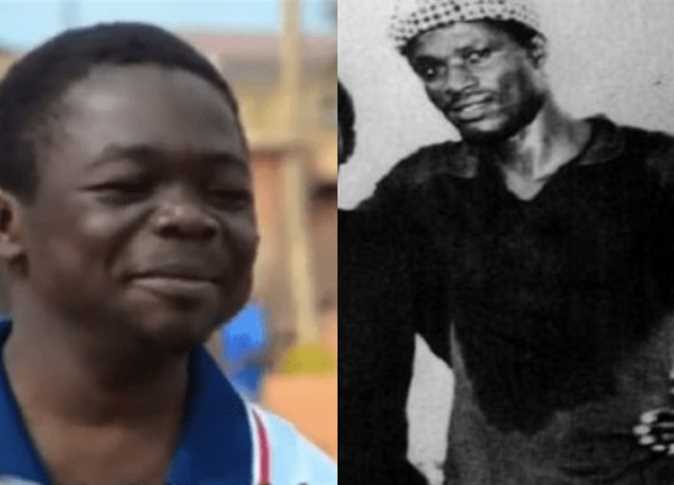The Africa Cup of Nations has always been a stage for dramatic stories and captivating events, drawing football enthusiasts worldwide into the secrets of the continent’s jungles and the diverse cultures of its people.
Today, we delve into the narrative of Ghanaian goalkeeper Robert Mensah, whose struggle with drug addiction and provocative antics, such as reading newspapers during matches, both intrigued and angered opponents and rival club players, ultimately leading to his demise.
Mensah, a controversial figure throughout the 1960s and 1970s, left an indelible mark not only on African football but on the global stage.
His penchant for provoking opponents and spectators in unconventional ways, such as lying on the field to read newspapers and turning his back on the pitch, engaged fans and fueled debates in the football world.
Mensah even dedicated his time to muscle exercises and frequently engaged in confrontations with the audience, all while under the influence of drugs.
The renowned goalkeeper, who played a pivotal role for Ashanti Kotoko and the Ghanaian national team during the ’60s and ’70s, reached unprecedented levels of controversy.
His distinctive hat, a target for rivals who believed it harbored mystical powers preventing them from scoring, added to the aura surrounding Mensah.
Despite the suspicions about his “magic” hat, Mensah’s skills were undeniable, leading Ashanti Kotoko to their first African title in 1970, defeating Mazinga of the Congo.
Mensah also secured the runner-up position with his team in 1967, losing two consecutive Africa Cup of Nations finals.
Born on June 12, 1973, in the Gold Coast, Mensah struggled with an addiction to Indian hemp, a drug similar to marijuana, which induced states of hysteria in its users.
The notorious incident occurred just hours before the kickoff of the 1970 Africa Cup of Nations in Sudan, where Mensah’s drug supply ran out.
Faced with withdrawal, he insisted that a dealer fetch the drug for him, sparking a confrontation with the Ghanaian national team coach.
Threatening to boycott the match, Mensah eventually coerced the coach into allowing him to indulge in his habit.
Ghana lost that crucial game to Sudan in the final, with Mensah’s antics reaching a climax.
In 1970, he was voted among the top nine players in Africa by France Football magazine.
In a tragic turn of events, Mensah continued to provoke opposing fans.
During a match against Liberia in 1970, a supporter hurled a firework towards him, causing a severe injury.
This incident served as a turning point for the controversial goalkeeper, signaling the end of his provocative gestures.
On November 2, 1971, just four days after Ghana’s defeat by Togo in the 1972 Africa Cup of Nations qualifiers, Mensah tragically lost his life at the age of 32.
A Ghanaian fan stabbed him with a broken glass bottle after mocking him for the team’s failure.
The assailant, a 31-year-old electrician, confessed to the murder after a scuffle in the Akpatsi Kredo area.
Mensah’s death prompted various campaigns in Ghana to raise awareness about drug use and alcohol consumption, including a popular song titled “Robert Mensah.”
Additionally, officials from Cape Coast, where Mensah began his football journey, named a stadium after him to honor his legacy.
Teammates of Robert Mensah, led by Ghanaian international Ibrahim Sunday, agreed that Mensah’s lack of discipline contributed to his death in such a gruesome manner.
The tragic tale continued with the untimely death of Mensah’s son, Kofi Anto, in 2022.
When Goalkeeper Robert Mensah was stabbed to death, his wife was six months pregnant. When she heard the news, she went into forced labour. The baby, Kofi Antoh is here.
Says he will not trade the cap for any amount though he has no legs to walk 😢
Interviewed by Blakk Rasta pic.twitter.com/or3WsSWBTF
— Saddick Adams (@SaddickAdams) December 5, 2021
Having refused to sell his father’s iconic hat in an auction, Kofi Anto took his own life at the age of 51, leaving behind a profound impact and adding another chapter to the Mensah family’s heartbreaking story.











